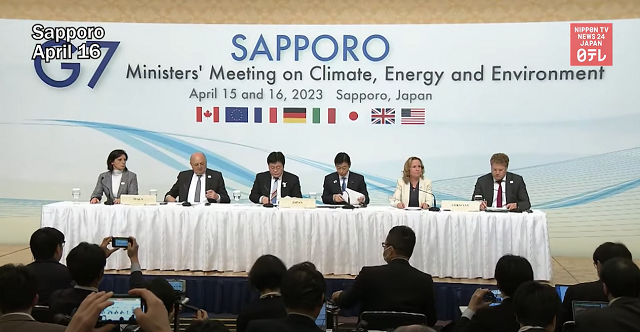G7: German Minister of Environment against Japan’s discharge of nuclear sewage
- Normal Liver Cells Found to Promote Cancer Metastasis to the Liver
- Nearly 80% Complete Remission: Breakthrough in ADC Anti-Tumor Treatment
- Vaccination Against Common Diseases May Prevent Dementia!
- New Alzheimer’s Disease (AD) Diagnosis and Staging Criteria
- Breakthrough in Alzheimer’s Disease: New Nasal Spray Halts Cognitive Decline by Targeting Toxic Protein
- Can the Tap Water at the Paris Olympics be Drunk Directly?
G7: German Minister of Environment against Japan’s discharge of nuclear sewage
- Should China be held legally responsible for the US’s $18 trillion COVID losses?
- CT Radiation Exposure Linked to Blood Cancer in Children and Adolescents
- FDA has mandated a top-level black box warning for all marketed CAR-T therapies
- Can people with high blood pressure eat peanuts?
- What is the difference between dopamine and dobutamine?
- How long can the patient live after heart stent surgery?
G7: German Minister of Environment against Japan’s discharge of nuclear sewage.
Japan announced that all parties “welcome the discharge of nuclear wastewater into the sea”, and the German Minister of the Environment reprimanded: At least we are not.

Japan’s Asahi Shimbun reported that G7 climate and energy ministerial meeting closed in Sapporo, Hokkaido, Japan on the 16th.
At the press conference, Japanese Minister of Economy, Trade and Industry Yasutoshi Nishimura said that substantive progress has been made in the dismantling of nuclear power plants, including the discharge of nuclear sewage into the sea, and that “Japan’s transparent and open actions based on scientific evidence are welcomed by all parties.”
Hearing these words, German Environment Minister Steffi Lemke next to Nishimura immediately said that although Germany respected the efforts made by Tokyo Electric Power Company and the Japanese government, Germany could not welcome the discharge of nuclear sewage into the sea.
After the press conference, Nishimura defended his speech by saying, “What I said was slightly wrong. The discharge of nuclear sewage into the sea is not welcomed by everyone.”
It is reported that after some “international efforts”, the discharge of more than 1 million tons of nuclear-contaminated water from the Fukushima Daiichi Nuclear Power Plant has been put on the agenda. Tepco has done enough publicity for this year’s discharge, and put forward the conclusion that “multiple dilutions of nuclear wastewater are harmless.”
Previously, the announcement of the plan caused strong opposition from neighboring South Korea, China and other countries. Western environmental protection organizations also condemned the Japanese government, warning them to “take responsible actions.” However, the follow-up emission plan was finalized without hindrance. It has only been eight years since the catastrophic event of nuclear contamination in Japan.

The news mentioned that the “international public opinion” problem of Japan’s nuclear wastewater discharge into the sea is mainly resolved by the United States.
At that time, US Secretary of State Blinken claimed that they had no objection to the discharge of nuclear wastewater into the sea.
It is said that the Japanese government has achieved “open, transparent and harmless treatment”, which meets the set requirements for the discharge of nuclear sewage.
The strange thing is that after the US made its statement, the questioning voices of the so-called “environmental protection practitioners” in the West gradually disappeared, and European and American countries gradually stopped interfering in this matter.
This incident cleared the way for Japan’s international public opinion.
On the 16th, at the G7 ministerial meeting, Japan raised the issue of nuclear wastewater discharge in a high-profile manner. Japanese Minister of Economy, Trade and Industry Yasutoshi Nishimura declared at a press conference that “substantial progress” has been made in the dismantling of nuclear power plants, including the discharge of nuclear wastewater into the sea, and their open and transparent (discharge of nuclear wastewater) actions are “welcome by all countries.”
But his remarks were suddenly interrupted by German Environment Minister Lemke who was sitting on the sidelines and said: “After the Fukushima nuclear power plant accident, we respect Japan’s efforts and actions, but we cannot welcome Japan’s nuclear power plant.” waste water disposal.”
Some analysts believe that when Japan first announced the discharge of nuclear wastewater, the West questioned it one after another. Environmental organizations, agricultural associations, university think tanks and even government agencies attacked it.
The current ruling party in Germany, the Green Party, also held a lot of dissatisfaction with it. voice; however, Germany has not intervened since the US made its statement. From Lemke’s remarks, it can be seen that they are still worried about this matter, and it is not that they have completely “let go” of Japan.
However, due to the face of Japan and Germany’s G7 allies, especially the attitude of the United States to calm down the situation, Germany has been silent. Now Japan is forcing everyone to “welcome the discharge of nuclear waste water” to Germany’s stimulus, which still angered the minister.
It is also worth mentioning that the disagreement between Germany and Japan is not surprising, because German leftists have become famous for vigorously promoting “energy saving”, “environmental protection” and “future climate concepts” in recent years. There seems to be a problem with speaking and not speaking.
A commentary on this said: “The United States has issued a ‘license certificate’ for the discharge of Japanese nuclear wastewater. Pull it out to ‘settle old scores’;
in addition, if it is Russia or China that is discharging nuclear wastewater, I am afraid that Blinken and the EU countries will be able to broadcast this event in carousels and promote it at full speed, which is not surprising at all.”
G7: German Minister of Environment against Japan’s discharge of nuclear sewage
(source:internet, reference only)
Disclaimer of medicaltrend.org
Important Note: The information provided is for informational purposes only and should not be considered as medical advice.



